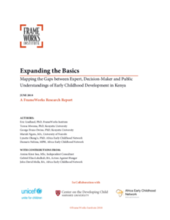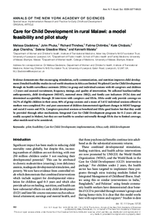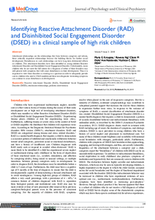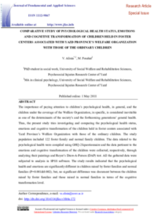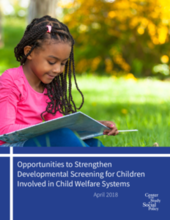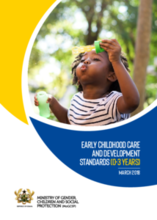Displaying 211 - 220 of 496
This report considers a set of key overlaps and gaps in understanding of children’s early development and perception among experts, the Kenyan public, and people who work and make decisions in the early childhood development (ECD) sector in Kenya.
The Nurturing Care Framework provides an evidence-based road map for action and outlines how policies and services can support parents, families, other caregivers and communities in providing nurturing care for young children.
This paper describes the piloting of Care for Child Development through six health surveillance assistants (HSAs) in group and individual sessions with 60 caregivers and children <2 years and assessed recruitment, frequency, timings, and quality of intervention.
This descriptive study involved caregivers and their adopted children, under the age of 7 years old, referred by pediatricians to an outpatient clinic, which specializes in early mental health. The prevalence of toxic stress, measured as symptoms of Reactive Attachment Disorder (RAD) and Disinhibited Social Engagement Disorder (DSED), was explored using clinical data collected during initial assessment.
The present study tries investigating and comparing the psychological health status, emotions and cognitive transformation of the children held in foster centers associated with Yazd Province’s Welfare Organization with those of the ordinary children.
The Handbook of Adolescent Development Research and its Impact on Global Policy aims to fill critical evidence gaps to speed evolution of better policy-making specifically tuned to this dynamic life stage.
This resource from the U.S. Center for the Study of Social Policy presents recommendations highlighting strategies for improving the delivery of developmental screening and early intervention for children who become known to state and local child welfare systems.
This video from Catholic Relief Services provides an overview of the Mothers and Babies Course.
Widely regarded as the state-of-the-science reference on attachment, this handbook interweaves theory and cutting-edge research with clinical applications.
This document on 0 – 3 years standards was developed to complement the other existing Early Childhood Care and Development (ECCD) documents which provide guidelines for caregivers in Ghana, including parents, towards achieving the developmental milestones or competencies within the age bracket 0-3.

